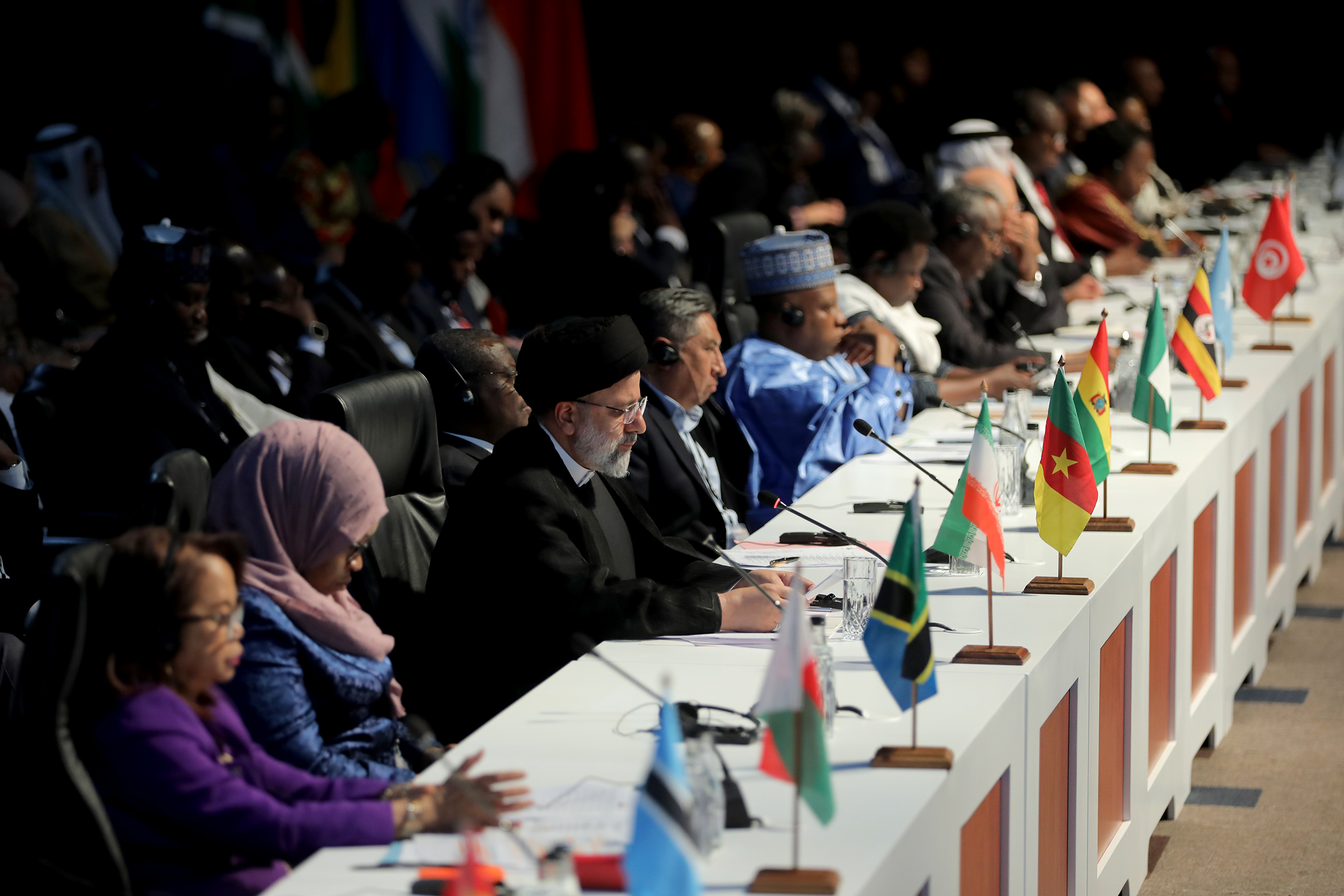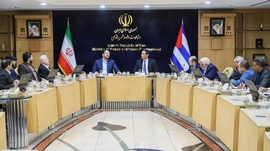Iran’s Deputy Chief of Staff to the President, Mohammad Jamshidi, has made a landmark announcement, revealing Iran's accession to the BRICS bloc. The news broke through a post on the X platform, formerly known as Twitter, on August 24th.
“The Islamic Republic of Iran has become a member of BRICS. Permanent membership in the group of emerging market countries is a historic development and a strategic achievement for the Islamic Republic's foreign policy,” Jamshidi wrote.
BRICS, an acronym for a collective of five major emerging economies – Brazil, Russia, India, China, and South Africa – functions as a collaborative force to bolster economic development, trade, and geopolitical influence on the global stage. This collaboration, initially informal, gained formal recognition in 2006 through the inaugural BRIC summit held in Russia. The addition of South Africa in 2010 prompted the evolution of the acronym from BRIC to BRICS.
Iran submitted its application to join BRICS in June 2022, aligning its aspirations with those of other applicants such as Saudi Arabia, Ethiopia, Egypt, Argentina, and the United Arab Emirates. For Tehran, the BRICS alliance represents a potent platform within the realm of emerging markets, offering an appealing alternative to the Western-dominated order.
Before embarking on his journey to the 15th BRICS summit in Johannesburg, South Africa, Iranian President Ebrahim Raisi emphasized the unique advantages of the BRICS alliance. These include a 40 percent share of the global population and control over a quarter of the Earth’s landmass. Raisi underscored that “certainly, the capacities of Iran will be a very suitable field for the development of cooperation with this economic bloc.”
During the summit, President Raisi reaffirmed that “Iran firmly supports successful efforts by BRICS in de-dollarization, economic relations among the members and the use of national currencies as well as bolstering the BRICS mechanism for payment and financial settlement.”
A pivotal focal point for Iran has been its pursuit of de-dollarization – a paramount policy directive catalyzed by Supreme Leader Ayatollah Ali Khamenei’s call to detach Iran’s economy from the US dollar earlier in the year.
The summit entrusted the exploration of avenues for transitioning to trading in local currencies to the central bank governors and finance ministers of the BRICS nations.
“The summit agreed to task the BRICS finance ministers and central bank governors, as appropriate, to consider the issue of local currencies, payment instruments and platforms and report back to the BRICS leaders by the next summit,” South Africa’s President Cyril Ramaphosa said while addressing the summit.
The drive towards de-dollarization resonates as a recurring theme among BRICS nations, who are collectively committed to reducing the global economy’s reliance on the US dollar for trade. Spearheaded by Russia due to geopolitical circumstances following the Ukrainian war, this initiative finds resonance among all BRICS members.
In the BRICS coalition, China stands prominently with the largest economy, contributing over 70 percent to the formidable $27.5 trillion economic aggregate. India accounts for around 13 percent, while Russia and Brazil each represent approximately 7 percent, as per data from the International Monetary Fund (IMF). Together, the BRICS coalition commands a remarkable 40 percent of the global population and roughly 26 percent of the global economy.







 Kyrgyzstan has joined the extensive reconstruction efforts in the Karabakh region of Azerbaijan, after a series of mega initiatives were launched b...
Kyrgyzstan has joined the extensive reconstruction efforts in the Karabakh region of Azerbaijan, after a series of mega initiatives were launched b...
 Turkmen President Serdar Berdimuhamedow and British Secretary of State for Foreign Affairs, Commonwealth Affairs, and Development David Cameron dis...
Turkmen President Serdar Berdimuhamedow and British Secretary of State for Foreign Affairs, Commonwealth Affairs, and Development David Cameron dis...
 A draft resolution aimed at preventing the development and deployment of weapons of mass destruction (WMDs) in outer space, co-sponsored by Japan a...
A draft resolution aimed at preventing the development and deployment of weapons of mass destruction (WMDs) in outer space, co-sponsored by Japan a...
 Russia and Ukraine have engaged in direct negotiations facilitated by Qatar to address the exchange of children affected by the ongoing conflict.
Russia and Ukraine have engaged in direct negotiations facilitated by Qatar to address the exchange of children affected by the ongoing conflict.



